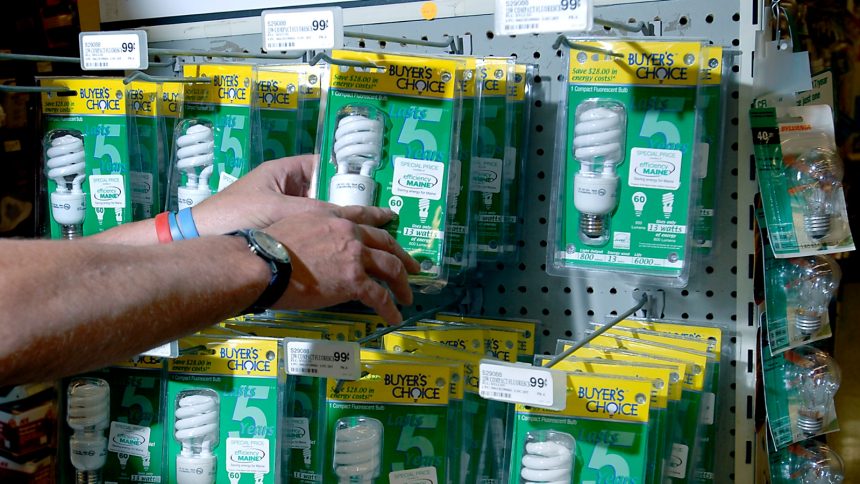The Department of Energy, or DOE, recently announced a significant update to energy efficiency requirements for light bulbs in the U.S. This move is expected to result in Americans saving a whopping $27 billion on their utility bills over the next 30 years. The new standards are estimated to prevent 70 million metric tons of carbon emissions over the same period, equivalent to the annual emissions of 9 million homes.
Under the updated regulations, starting in 2028, all light bulbs sold or imported in the U.S. must have an efficiency level of at least 120 lumens per watt, nearly triple the current standard. This means that a light bulb as bright as an old 60-watt incandescent bulb will only require 6.5 watts of electricity.
The government has been progressively raising efficiency standards, with the classic Edison-style incandescent bulb mostly phased out last year. The current rule, setting the efficiency standard at 45 lumens per watt, was initially slated to take effect in 2020 but was delayed. With the new regulations in effect by 2028, the DOE predicts that 98% of new bulbs sold in the U.S. will be LEDs.
Exemptions are in place for specific types of bulbs, such as oven lights, where LEDs may not perform well under certain conditions. Overall, these standards aim to drive greater energy efficiency without mandating specific types of bulbs for household use.
Andrew deLaski, from the Appliance Standards Awareness Project, highlighted the positive impact of these efficiency improvements in combating climate change. Manufacturers have been steadily enhancing the efficiency of light bulbs, spurred by economic incentives and federal regulations. The latest federal standards ensure that the latest efficiency technologies are integrated into all available LEDs in the market.
The progress in lighting technology has been substantial, with LED bulbs far outperforming traditional incandescent and CFL options. These advancements, coupled with federal mandates, are paving the way for a more energy-efficient future, reducing the reliance on fossil fuels and mitigating climate change.






